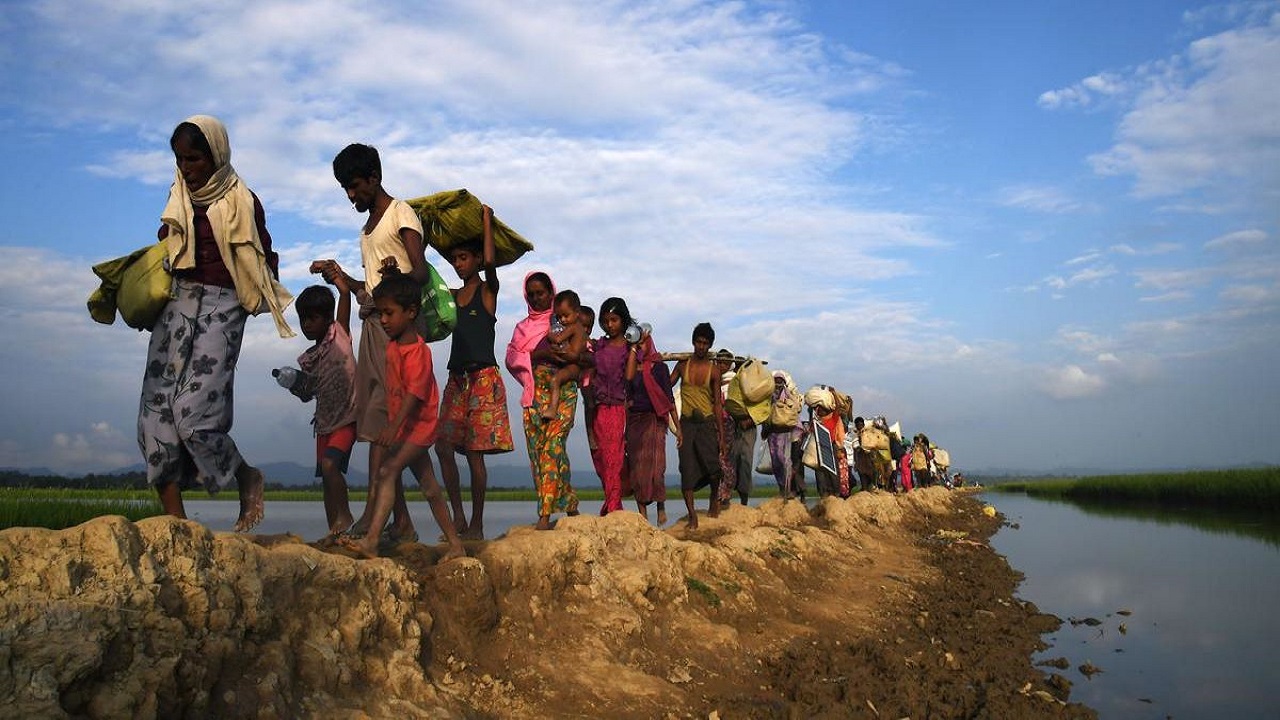Illegal Migration in India : Security Imperatives and Human Rights Concerns
Context
The Union Home Ministry has recently directed States to identify and deport illegal migrants, especially those from Bangladesh and Myanmar, as part of a counter-terrorism sweep. This directive has sparked debates on the intersection of migration, security, identity, and rights within India.
Introduction
Illegal migration refers to the movement across borders without legal authorization, including entering, residing, or overstaying without valid documents. While migration is a natural and necessary phenomenon in a diverse and dynamic country like India, it becomes a contested issue when tied to questions of national security, citizenship, and political identity.
Causes of Illegal Migration
-
Economic hardship arising from poverty and joblessness.
-
Conflict and violence forcing people to escape persecution, disasters, or wars.
-
Political instability and authoritarian regimes pushing people to migrate.
-
Restrictive migration policies limiting access to legal migration.
-
Better opportunities and family reunification acting as social drivers.
Facilitating Factors
-
Porous borders and weak enforcement mechanisms.
-
Existence of human smuggling networks and traffickers.
-
Lack of structured legal migration pathways.
Risks and Challenges
-
Exposure to unsafe journeys and exploitation.
-
Criminalization and denial of rights in host societies.
-
Risk of statelessness and marginalization.
Issues with Enforcing Deportation Guidelines
-
Bypassing due process as language, religion, and citizenship are blurred into exclusionary practices.
-
Targeting of vulnerable groups such as Bengali-speaking Muslims in states like Haryana, Delhi, and Odisha despite possessing valid identity documents.
-
Weaponization of identity through arbitrary detentions undermining equality, dignity, and due process guaranteed by the Constitution.
-
Historical precedent of Operation Pushback (1990s) where deportations ignored valid documents and procedures.
Regional Responses
Assam
-
Migration anxieties trace back to Partition (1947) and the Bangladesh Liberation War (1971).
-
The Bongal Kheda movement and the Assam Agitation (1979–1985) culminated in the Assam Accord, aimed at protecting indigenous identity.
-
The 2019 NRC excluded over 19 lakh people, many of them Bengali-speaking Muslims.
-
Recent invocation of the Immigrants (Expulsion from Assam) Act, 1950 allows deportations without oversight by Foreigners Tribunals, raising concerns of communal profiling and erosion of safeguards.
West Bengal
-
The Chief Minister has described the deportation measures as discriminatory, accusing the Centre of attempting to implement NRC “through the backdoor”.
-
Launch of Bhasha Andolan to defend linguistic and cultural identity of Bengali speakers.
-
Ahead of elections, the migrant issue has become a political platform, with slogans like Bangla nijer meyekei chay reinforcing regional pride.
-
Approximately 22.5 lakh Bengalis work outside West Bengal, making migrant rights a politically sensitive issue.
Rising Security Concerns
-
In Pune, a mob allegedly linked to Bajrang Dal targeted relatives of a Kargil War veteran, accusing them of being Bangladeshis.
-
Local police reportedly acted under mob pressure, highlighting law enforcement complicity and the dangers of identity-based vigilantism.
What Lies Ahead
-
The rhetoric of “citizen vs infiltrator” may yield short-term political gains, but risks long-term social divisions.
-
Weaponizing identity erodes pluralism, constitutional guarantees, and civic trust.
-
Over-politicization of migration may weaken social harmony, democratic institutions, and national unity.
Conclusion
Illegal migration poses a complex challenge where security imperatives must be balanced with constitutional values and humanitarian principles. Without due process, institutional safeguards, and cooperative regional frameworks, the continued politicization of migration risks deepening divisions and undermining the inclusive foundations of Indian democracy.




Comments (0)